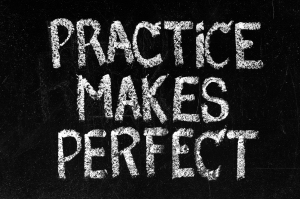 I was speaking to an IELTS student today and she told me that because she had got a low score in the listening test last time she was now concentrating just on listening and would review the other parts of the exam the week before the exam.
I was speaking to an IELTS student today and she told me that because she had got a low score in the listening test last time she was now concentrating just on listening and would review the other parts of the exam the week before the exam.
This is a high risk strategy and shows a lack of understanding about how language learning works. Basically if you don’t use a language you will forget it. Just because you reached a band 7 in writing 3 or 4 months ago does not mean that that band 7 will be set in stone.
If you don’t continue to practice writing your level can easily drop. This is the main reason that the IELTS only has a shelf-life of two years. After two years your level could easily be very different.
So, the first thing you have to do in your practice is to keep practising all parts of the exam. If you are looking for an overall band it makes sense as the parts you are already good at will continue to improve and can lift your overall score significantly. Why wouldn’t you want a 7.5 or 8 next time?
Languages are skills they don’t operate like academic subjects you can’t really ‘revise’ them. They are more like driving a car or learning to swim or play the piano; the more you do the better you become. Practising little and often is the best way. Do a little every day and make sure you do each part at least once a week but better every day.
Also just like learning the piano, there are different levels of expertise and at each change of level you may need some help and support to show you how to get to the next level. Getting to band 6 is one thing but from 6 to 7 is a bigger leap and you may need some direction for this. Certain areas like writing are very difficult to improve by yourself and you can actually do more damage by learning mistakes so try to get someone to assess your writing before errors become ingrained – this is much more difficult to rectify.
Finally working with a teacher or a study partner is more enjoyable and helps your confidence. Going alone is a very lonely street and one that is hard to navigate. Any learning is far more effective if you are engaged and enjoying what you are doing.

